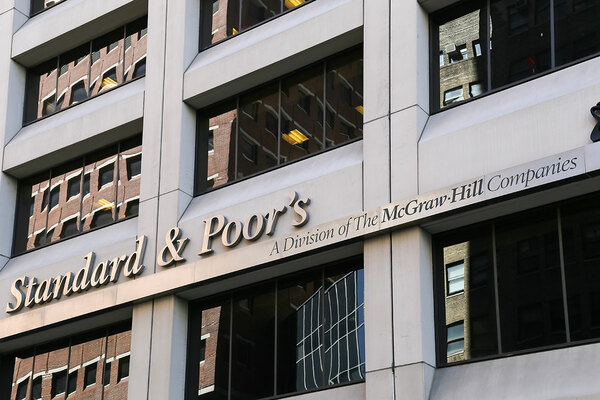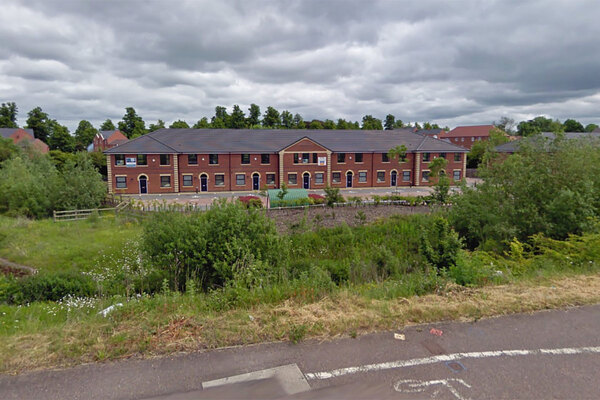Governance downgrade for 32,000-home landlord in latest batch of regulatory judgements
A major landlord has had its governance grading downgraded by the English regulator as a result of needing to improve oversight of its risk management and stress-testing, amid a clutch of regulatory judgements released today.
Flagship Group, which owns and manages around 32,000 homes across the East of England, received the downgrade from the Regulator of Social Housing (RSH) following an in-depth assessment (IDA).
The association’s governance grade was downgraded from G1 to G2 and its existing financial grading was maintained at V2.
Explaining its decision, the RSH said Flagship “needs to improve the effectiveness of its risk management and internal controls assurance framework and aspects of its financial governance arrangements”.
Better oversight is needed for the landlord to improve its stress-testing and business and financial planning so that it can manage its risk in line with its risk appetite.
On the financial side, the RSH said the association’s financial plans and strategy are consistent alongside “an adequately funded business plan, sufficient security and is forecast to continue to meet its financial covenants”.
In response, Peter Hawes, chair at Flagship, said: “Flagship is pleased that it continues to meet the governance standard. The feedback recognised our strengths and highlighted areas that need strengthening, including stress-testing, board oversight and assurance to ensure we can manage risk in line with our risk appetite.
“We will now work with the regulator, the board, our staff and tenants to further strengthen our governance arrangements, with many processes already in place.”
Among the judgements released today, 18,000-home Yorkshire Housing saw its G1 and V2 grades maintained.
“Yorkshire Housing has a significant development and sales programme, including shared ownership and market sale through a material investment in a commercial subsidiary,” the regulator said.
“This exposes Yorkshire Housing to a range of market conditions and means that it is susceptible to the crystallisation of housing and economic risks. The scale of planned development also increases the level of debt it needs to service.
“When coupled with the current economic environment in relation to inflation and interest rates, these factors reduce [its] capacity to deal with adverse scenarios.”
Responding, Nick Atkin, chief executive of Yorkshire Housing, said: “I’m pleased that Yorkshire Housing has retained its G1/ V2 grading following our recent IDA. This demonstrates that we remain financially strong and well managed as a business, despite the significant challenges faced by everyone working in the housing sector.
“Our continued V2 rating reflects our ambitious growth and investment plans as we continue to build the much-needed affordable homes across Yorkshire in response to the housing crisis.”
Freebridge Community Housing, which manages nearly 7,000 homes in the King’s Lynn and West Norfolk local authority area, saw its financial viability grade downgraded from V1 to V2. Its existing governance grade was confirmed at G1.
“It has an adequately funded business plan with sufficient security in place and is forecast to continue to meet its financial covenants,” said the regulator.
“Freebridge plans to refinance its original stock transfer funding to deliver the development ambitions set out in its corporate strategy.”
However, the RSH warned of a limited monetary headroom, which, coupled with current economic uncertainty in relation to inflation and interest rates, will restrict the landlord’s ability to manage a wide range of financial risks.
On governance, Freebridge provided the regulator with assurances that its governance arrangements enable it to adequately control the association and to continue meeting its objectives.
Leeds Federated Housing Association (LFHA) had both its governance and financial viability grades reaffirmed at G1 and V2.
The landlord operates in the Leeds city region with around 4,500 homes.
Based on the evidence in IDA, the regulator said LFHA’s “financial plans are consistent with and support its financial strategy. It has sufficient security and forecasts to continue meeting its financial covenants”.
It was pointed out that the landlord’s operating margins will remain tight and it will require additional finance in the short term. Its financial capacity to respond to adverse events will also be reduced and it is susceptible to economic changes including further increases in costs.
The RSH believes that LFHA’s governance arrangements enable it to “adequately control the organisation and to continue meeting its objectives”.
Matthew Walker, chief executive of LFHA, said: “Leeds Fed welcomes the result of the IDA, which confirms we are compliant with the regulatory framework. We were happy to volunteer for the consumer IDA pilot as part of that process, which we found to be a helpful exercise to go through in comparing our activity and plans to the regulator’s thinking around consumer standards and exploring how we can further improve services to customers.”
In a further judgement, the regulator confirmed the grading of 3,200-home South Lakes Housing (SLH), which operates in Cumbria, as G1 and V2 but changed the basis for its V2 grade.
The RSH said: “SLH is investing significantly in its existing homes, including an accelerated programme to improve energy efficiency, resulting in reduced levels of interest cover.
“Alongside the current economic uncertainty in relation to inflation and interest rates, SLH has reduced capacity to respond to adverse events.”
Today’s strapline judgements, which do not come with a published opinion, confirmed the ratings of Aster Group, Castles and Coasts Housing Association, Cornerstone Housing and Wythenshawe Community Housing Group all at the top ratings of G1/V1.
A regulatory notice that indicated a breach of the Home Standard – which protects tenants from serious detriment – impacting Westmoreland Supported Housing was withdrawn, with the regulator saying the “issues leading to it had been resolved”.
Sign up for our regulation and legal newsletter
Already have an account? Click here to manage your newsletters












